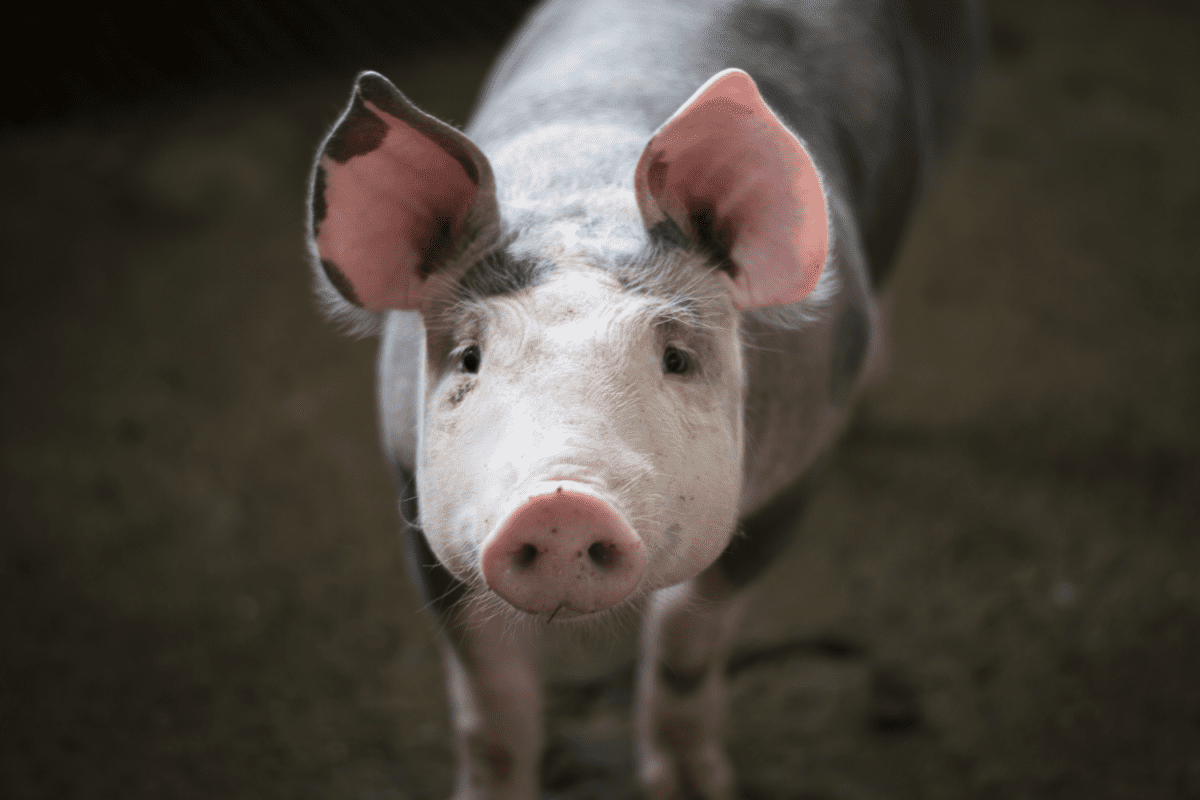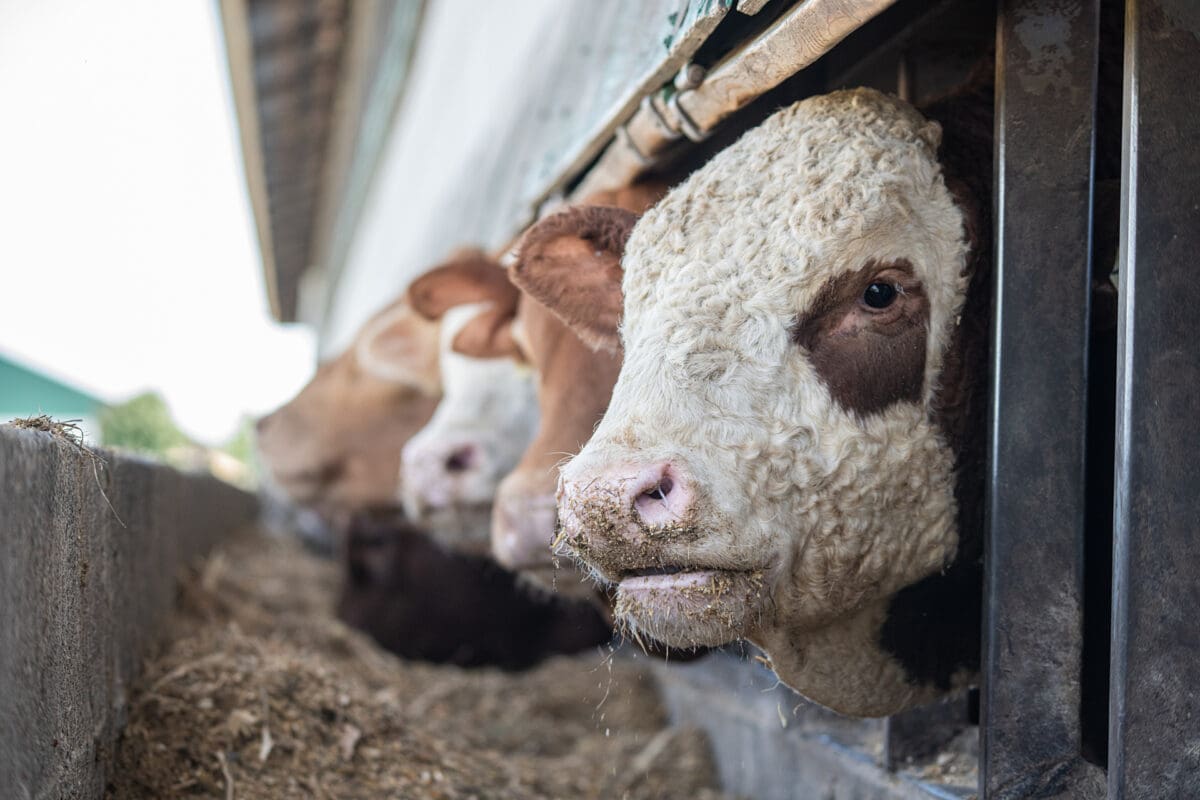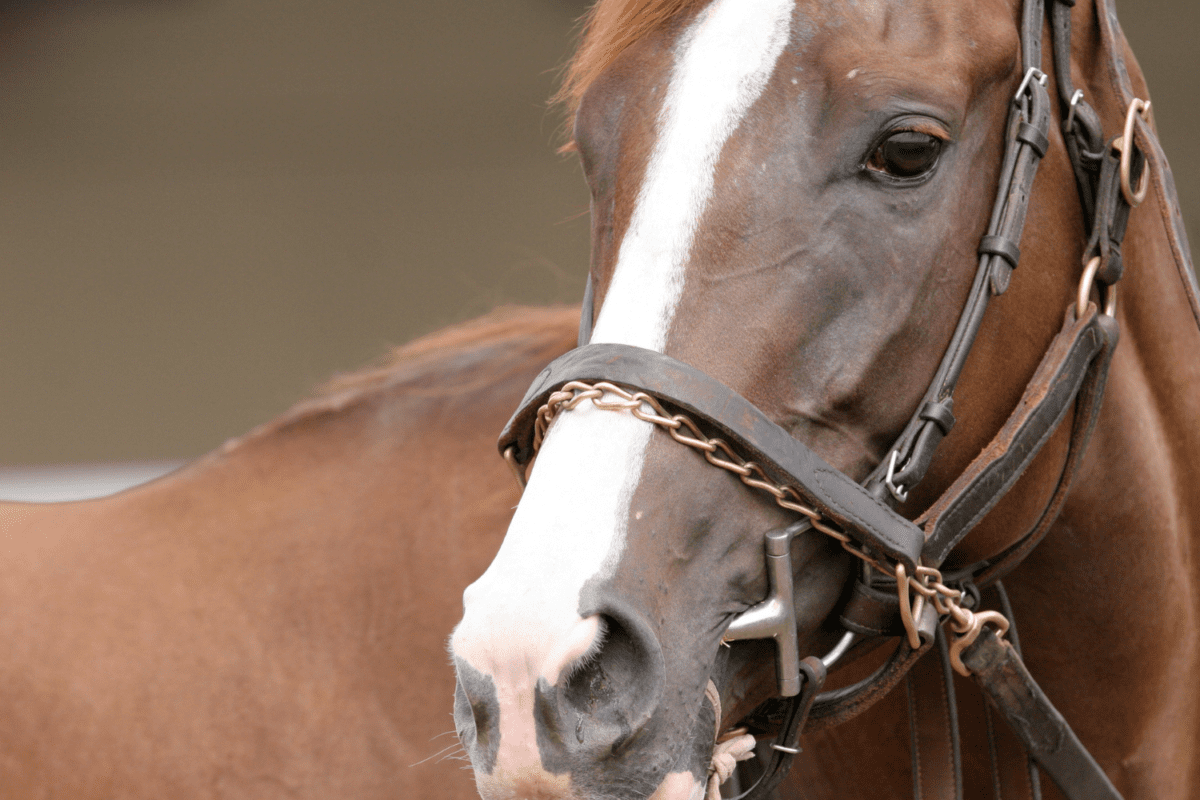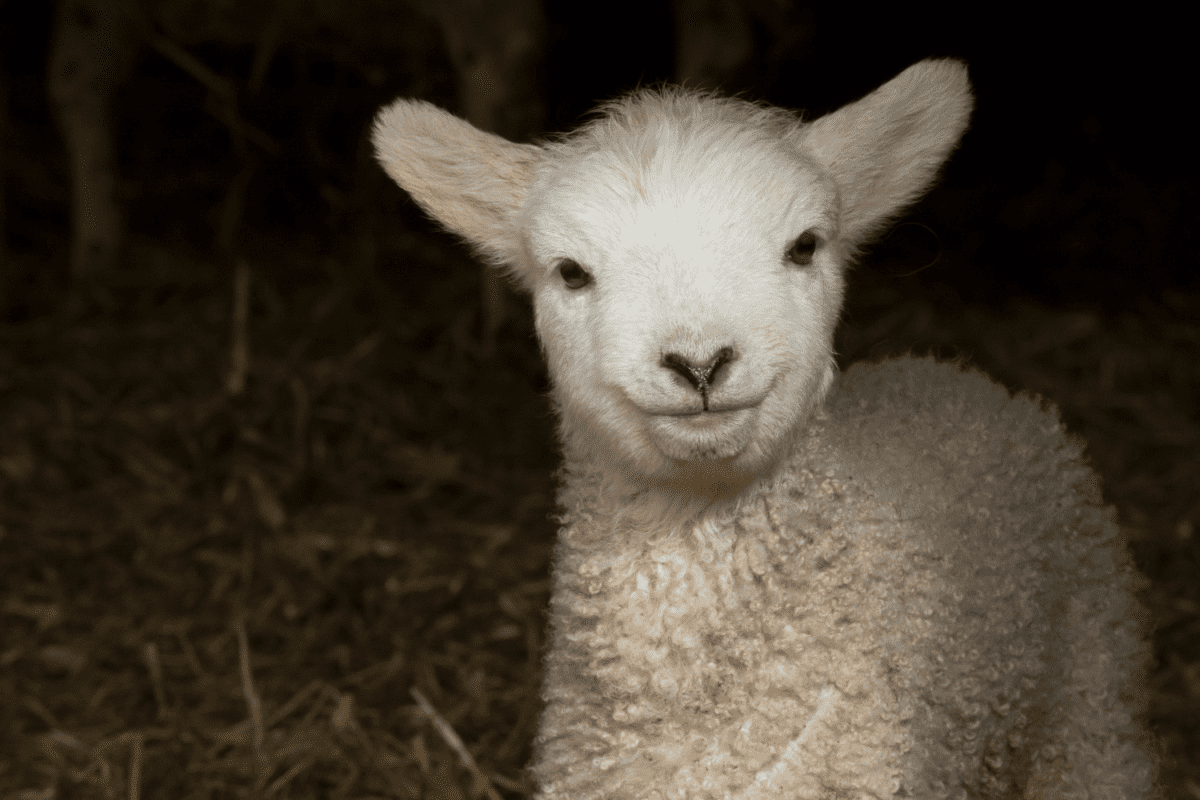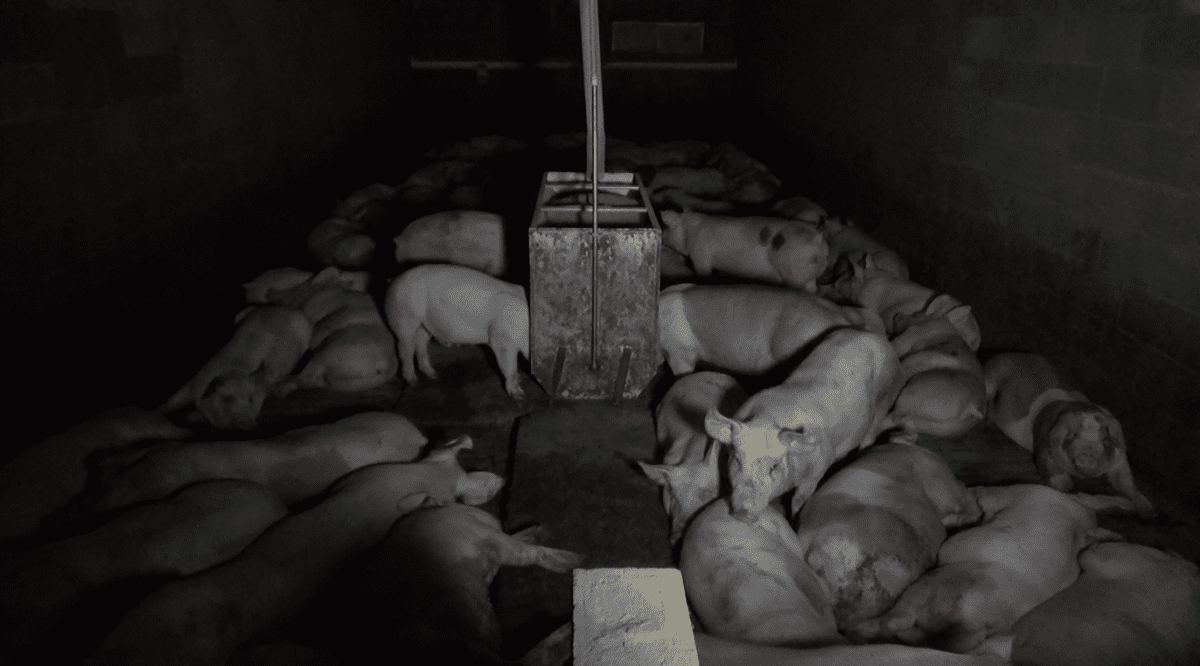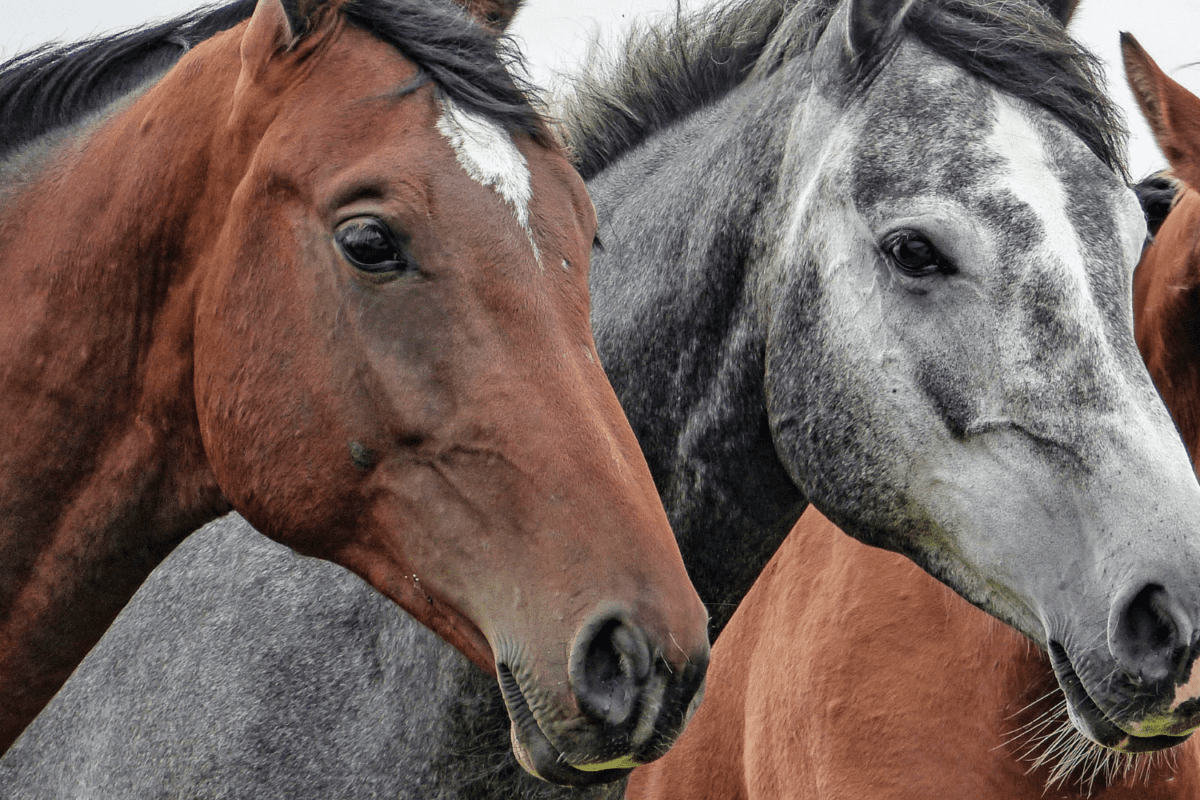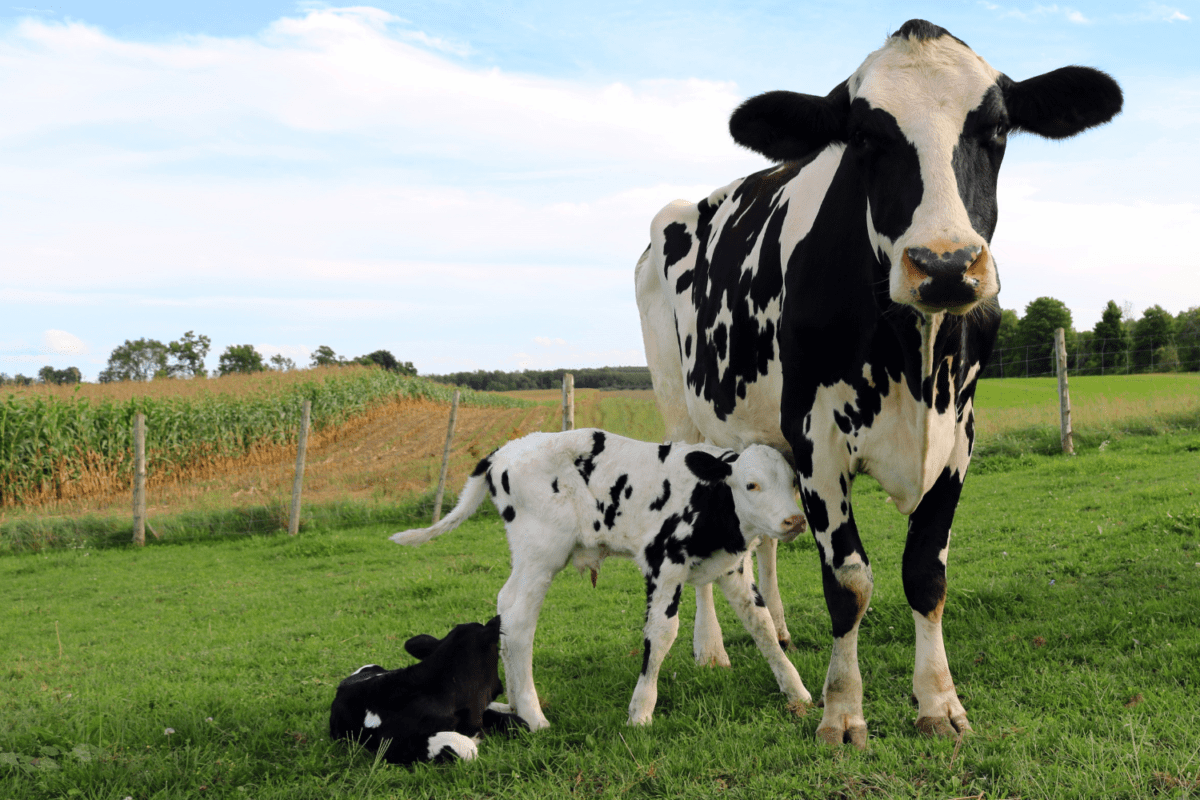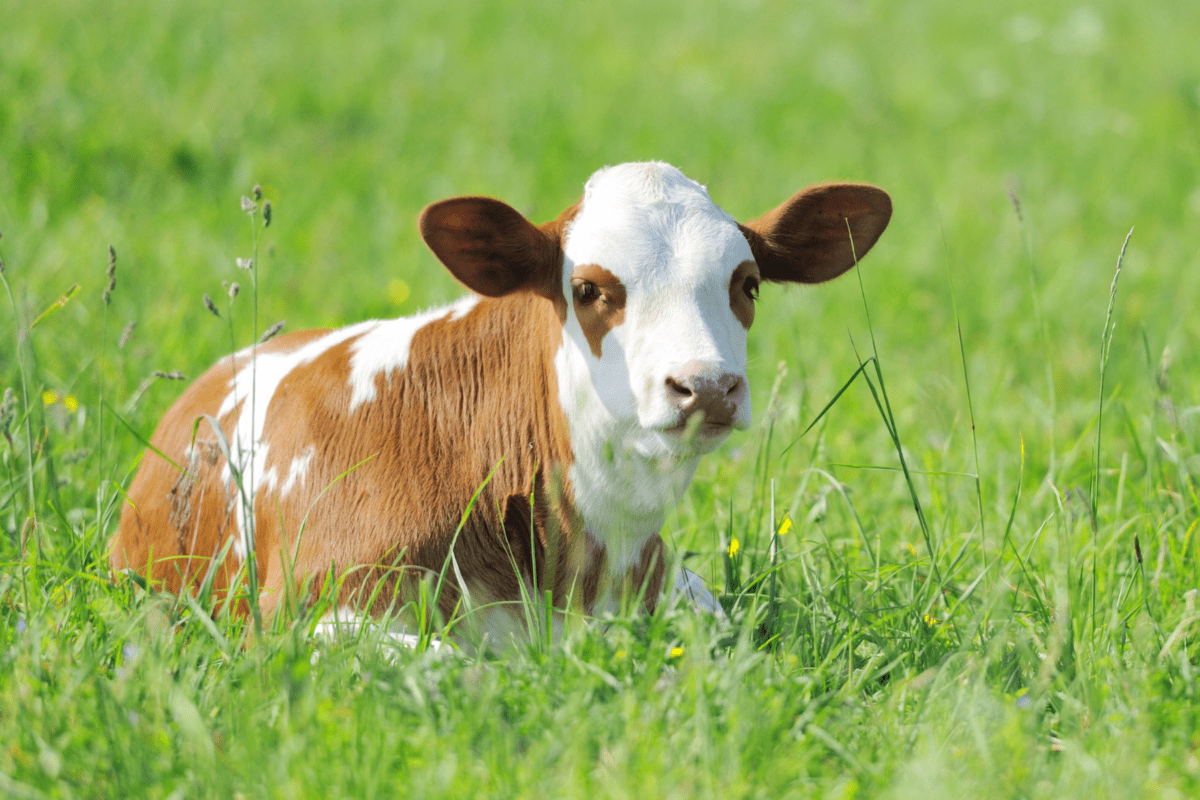Over the past decade, near-annual investigations at farms and slaughterhouses have uncovered recurring welfare problems in British Columbia’s animal agriculture industry. Learn more about these investigations and call on the B.C. government to implement meaningful changes to protect farmed animals during its current review of the province’s farmed animal welfare framework.
Recurring animal welfare concerns point to systemic problems
Enforcement of farmed animal welfare regulations faces many challenges:
- Thousands of farms house more than 100 million animals
- There is no government-funded enforcement
- Cruelty investigations are based on complaints, but farmed animals are increasingly hidden from public view
- Footage obtained in undercover investigations is often deemed non-admissible in court
Charges in cases like these are rare. When charges are recommended or laid, the legal process can take years, resulting in the same companies appearing in multiple cruelty investigations and thousands of animals suffering before companies are held accountable.
Cruelty investigations from 2014 to 2024
Note: The timeline below includes photos from investigations that may be upsetting. For a timeline that does not include any photos, visit this post.
Undercover footage from a Chilliwack slaughterhouse shows horrific suffering of pigs and violations of slaughter regulations.
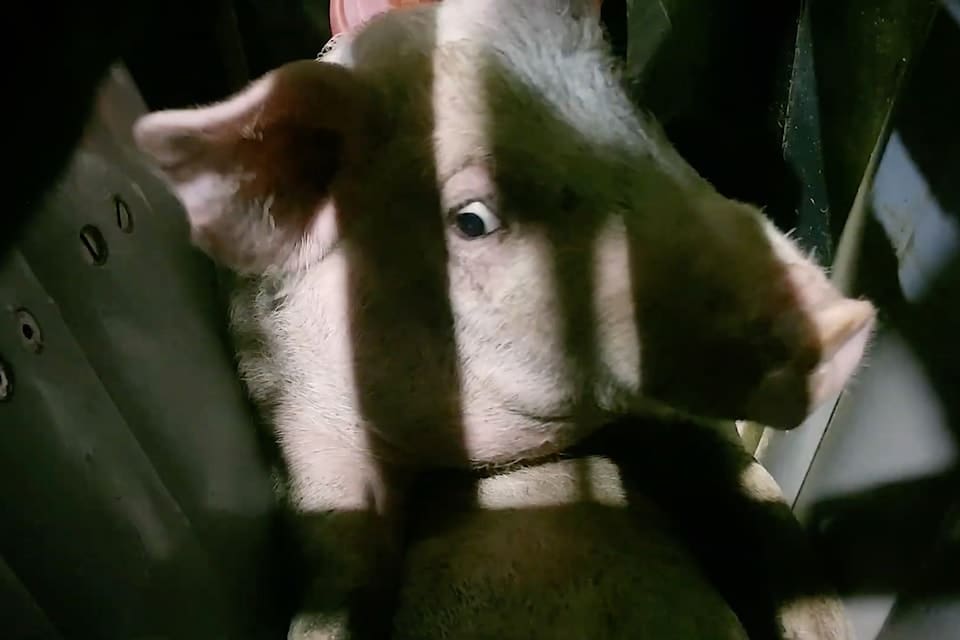
Photo: Animal Justice via The Chilliwack Progress
(Warning: graphic images)
Footage shows hens suffering in egg farm cages, including nearly two dozen farms in British Columbia.
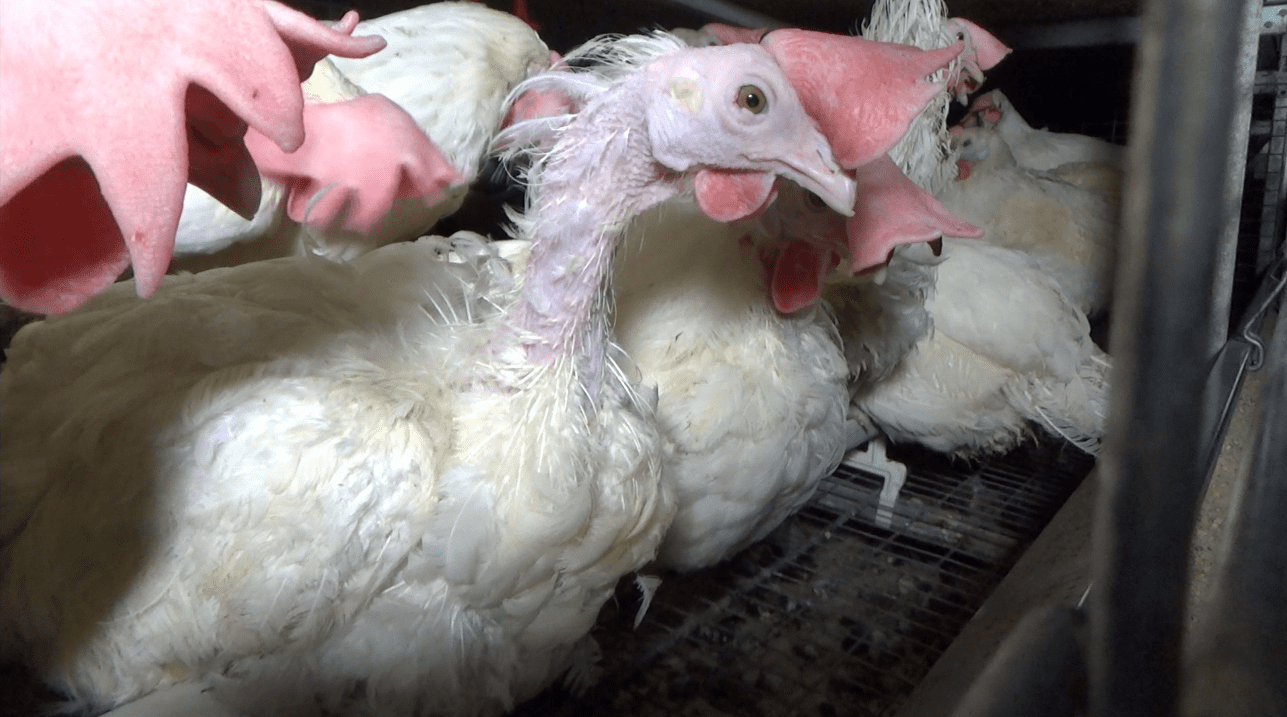
Photo: Animal Justice
(Warning: graphic images)
An exposé reveals farmed fishes raised in cramped and filthy tanks, repeatedly stabbed and cut open while alive for caviar, and inhumanely slaughtered.
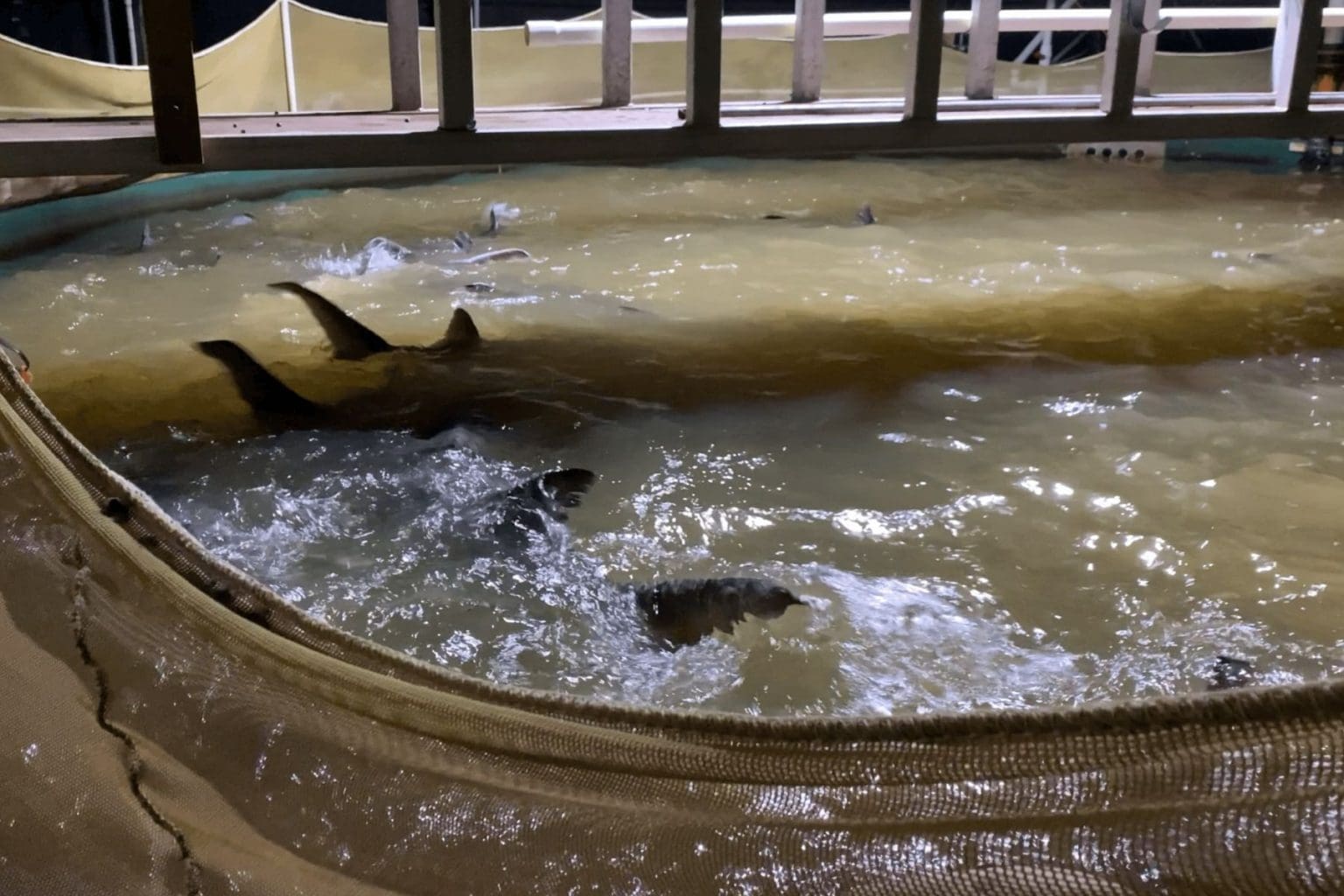
Photo: Animal Justice
(Warning: graphic images)
Excelsior Hog Farm accused of cruelty following release of undercover footage showing cruel handling practices, injured and dead pigs and piglets, and filthy conditions.
BC SPCA investigation conducted.
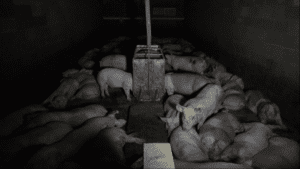
Photo: Animal Justice
Undercover investigation at Meadow Valley Meats shows animal abuse, suffering and violations of slaughter regulations.
BC SPCA investigation conducted.
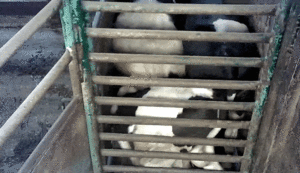
Photo: Animal Justice
Organic dairy farm Cedar Valley Farms accused of animal abuse after footage shows dairy cows being violently and repeatedly beaten, injured cows limping, and improper slaughter.
Charges recommended against farm and individuals.

Photo: Animal Justice
Video from an Abbotsford egg farm shows Elite Farm Services workers flinging chickens into crates by the legs, wings and closing doors on their limbs, necks.
No charges have been laid in connection with the incident to date.

Photo: BC Animal Ag Uncovered via Chilliwack Progress
Footage from Excelsior Hog Farm shows pigs suffering from growths and injuries, being hit and kicked, and having tails and testicles cut off without pain control.
A BC SPCA investigation was conducted, but no charges were laid.
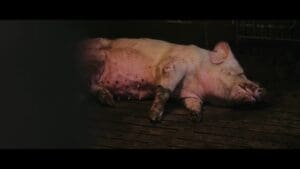
Photo: Meat The Victims Canada
Videos from three Abbotsford egg farms show dead hens in cages with live hens, along with dead and dying hens stuck in piles of manure.
BC SPCA investigation conducted.
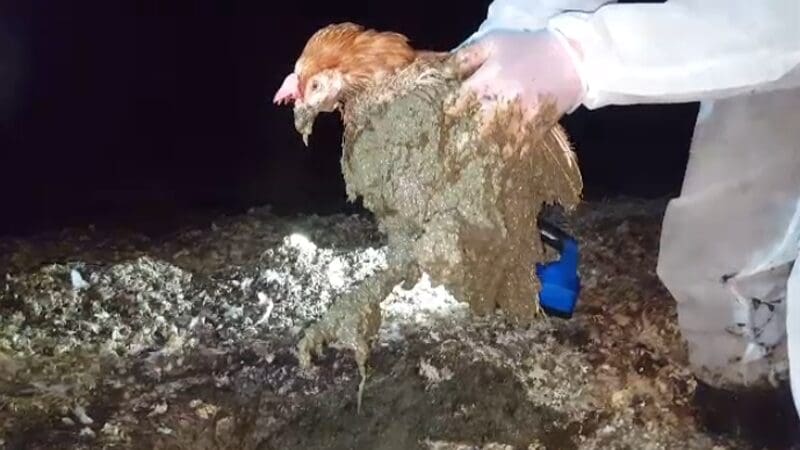
Photo: Animal Justice via CTV News Vancouver
Elite Farm Services is caught on camera brutally abusing chickens at multiple Fraser Valley farms while loading the animals into transport crates.
Six employees from Elite were fired. BC SPCA recommended charges. In December 2021, Elite and Port Coquitlam slaughterhouse operator Sofina Foods each received a $300,000 fine and three years’ probation.

Photo: Mercy for Animals via CTV News Vancouver
Footage from Abbotsford-based Lilydale slaughterhouse shows slow, painful, and inhumane turkey deaths that are commonplace in the poultry industry.
Public cries for changes to practices.
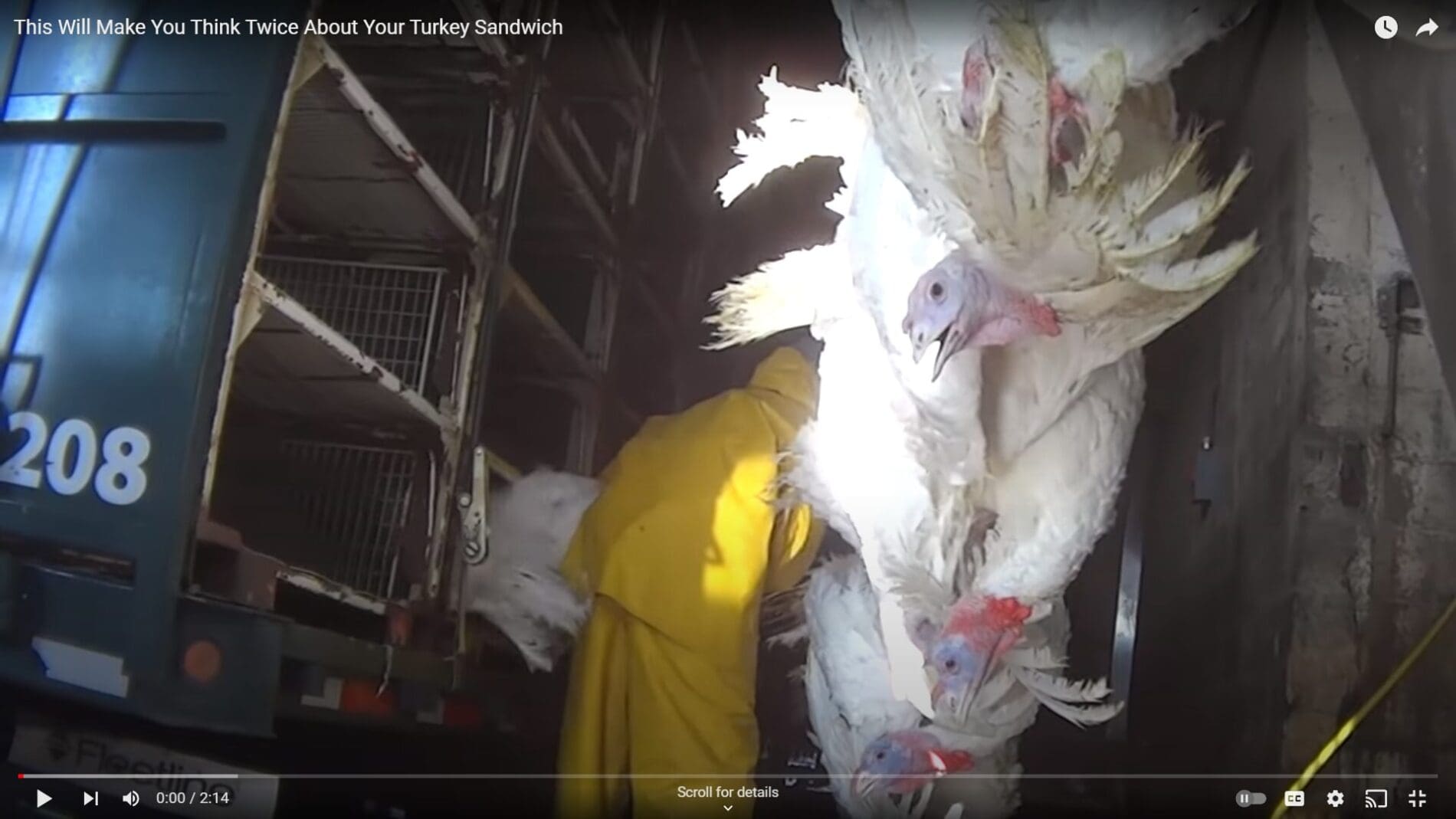
Photo: Mercy for Animals
Undercover footage at Chilliwack Cattle Sales shows dairy cows being repeatedly kicked, punched and beaten. Cows are seen suffering from open wounds and infections.
Company president and a director both pled guilty to four counts of animal cruelty and the company was fined about $345,000. Several employees also pled guilty and received varying jail sentences ranging from 7-60 days, probation, fines, and prohibitions against caring for animals for 1-3 years.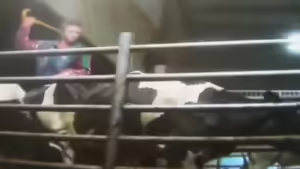
Photo: Mercy for Animals via CBC
Without stronger protections, animals will continue to suffer behind closed doors. Can you take the quick action to call for meaningful changes to protect animals and bring transparency to the farming system?
Learn more

The Vancouver Humane Society’s Campaign Director, Emily Pickett, discusses her observations of farmed animal cruelty investigations in-depth in this episode of the VHS’s podcast, The Informed Animal Ally.
Learn more about the patterns in this past decade of investigations, what has changed, and how you can help.

